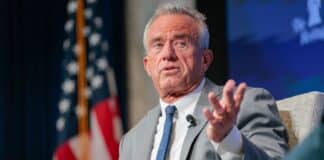It is a little more interesting than picnics and hot dogs.
The story being with the Industrial Revolution in the early 1800s, which caused workers to move from farms to factories.
Factories produced items less expensively, resulting in citizens experiencing the fastest rise in the standard of living in human history.
Waves of immigrants to America worked in factories and railroads: English, Irish, Scandinavian, Italians, Greeks, Poles, Russian, Jews, and Germans.
Some German immigrants brought with them Karl Marx’s idea of redistributing wealth.
In America, innovative people worked hard and achieved wealth in one lifetime, but in Europe, wealthy elites owned most of the property for centuries, leaving little for commoners.
Marx coined the term “class struggle” advocating for governments to forcibly redistribute wealth.
Once in America, immigrants helped organize unions which pushed for an 8-hour work day and income taxes on the rich.
In 1894, Eugene Debs organized a railroad workers strike in Chicago which spread to 27 states, pillaging and burning $80 million worth of railroad cars and property, causing several deaths.
A New York Times editorial, July 9, 1894, called Debs “a lawbreaker at large, an enemy of the human race.”
President Grover Cleveland declared the strike a federal crime and deployed 12,000 army troops to break up the strike.
After the riots, Americans were unhappy with the Democrat Administration.
Cleveland’s advisor, Francis Lynde Stetson, warned that Democrats may lose the upcoming 1894 mid-term elections:
“… unless a return of commercial prosperity relieves popular discontent with what they believe is Democratic incompetence to make laws.”
Cleveland thought it might help his Party’s mid-term election if workers were given a day off — a national “LABOR DAY.”
Workers wanted it on May 1st to coincide with the socialist “International Workers Day” and the anniversary of the bloody Chicago Haymarket Riot, which killed four and wounded seventy.
Instead, Grover Cleveland chose to have Labor Day on the FIRST MONDAY in SEPTEMBER.
Congress recognized May 1st as “Loyalty Day” in 1955, a public holiday signed by President Eisenhower, Public Law 85-529.
What happened in the 1894 elections?
Well, Labor Day did not help the Democrat Party as it had the biggest mid-term loss in decades.
What happened to Eugene Debs?
Well, he was arrested for organizing the railroad strike, as it obstructed the delivery of U.S. mail.
His attorney was Clarence Darrow, notorious for defending murderers and arguing for the theory of evolution in the Scope’s Monkey Trial.
Debs was sentenced to 6 months in prison.
There he “ravenously” read Karl Marx’s Das Kapital.
Upon release, Debs founded the Socialist Party of America in 1901, running five times for U.S. President, till 1920.
He won zero electoral votes and as a result, opposed the electoral process.
When World War One started, Debs urged resistance to the draft.
Debs inspired Roger Baldwin to become a draft-dodger.
Baldwin then founded the A.C.L.U. to defend those accused of being socialist agitators.
Roger Baldwin wrote:
“I am for socialism … I seek social ownership of property, the abolition of the propertied class, and sole control of those who produce wealth. Communism is the goal.”
Eugene Debs also inspired Russia’s socialist leader Vladimir Lenin, who overthrew Tsar Nicholas II in the Bolshevik Revolution.
Lenin praised Debs in “An Open Letter to Boris Souvarine,” published January 27, 1918, in La Vente, Number 48:
“Look at America … Haven’t we the beginnings of a split there, too: Eugene Debs, the ‘American Rebel’, declares in the socialist press that he recognizes only one type of war, civil war for the victory of socialism.”
In 1918, Debs was charged with sedition and sentenced to ten years in prison.
In support of Debs, union members, socialists, communists, and anarchists, marched in a May Day parade in Cleveland, Ohio. Their peaceful protest broke out into Antifa-style violence — the May Day Riots of 1919.
Debs’ attorney asked for a Presidential pardon, but Woodrow Wilson wrote “denied” across the paperwork, stating that during World War One:
“… while the flower of American youth was pouring out its blood to vindicate the cause of civilization, this man, Debs, stood behind the lines sniping, attacking, and denouncing them.”
The next President, Warren G. Harding, released a White House statement on Debs:
“There is no question of his guilt … He is … a dangerous man calculated to mislead the unthinking and affording excuse for those with criminal intent.”
In 1979, Bernie Sanders produced a documentary praising Eugene Debs, hung his portrait in Burlington, Vermont’s City Hall, and has a plaque honoring him in his Senate office.
After the Bolshevik Revolution, Lenin formed the Communist International on March 2, 1919.
Members of Debs’ Socialist Party followed this by forming the Communist Party USA on September 1, 1919.
The Communist Party USA ran candidates for U.S. President every year from 1924 until 1940.
That is when the Communist Party USA began supporting Democrat President Franklin Roosevelt’s New Deal welfare programs during the Great Depression and his treaty with Stalin during World War Two.
It should be acknowledged that Unions did bring about an 8-hour work day; the 40-hour work week; minimum wages; safer working conditions; and better benefits for workers.
But there were consequences.
The story circulated that Henry Ford hired Muslims at his Detroit factory to break the control of unions.
ArabAmerica.com reported, September 5, 2020:
“The origin story of how the Yemeni community in Michigan is an interesting one. Way back in the early 1900s, Henry Ford started recruiting Yemeni workers to work at Ford’s factories.”
Another consequence was, as union benefits increased, companies looked for ways to lower expenses, giving rise to outsourcing – moving factories and jobs to countries overseas.
In overview, in socialist countries, laborers work hard but own few possessions. People with few possessions have less to give away in charity.
In America, laborers work hard and earn wages with which they can buy possessions, and, if they want, voluntarily give to charity.
Union membership declined in America from a high of 35 percent of the workforce in 1954 to currently less than 9.9 percent.
Alexander Solzhenitsyn, who spent 11 years in Soviet labor camps, warned American workers, June 30, 1975:
“I … call upon America to be more careful … Prevent those … falsely using the struggle for peace and for social justice to lead you down a false road … They are trying to weaken you; they are trying to disarm your strong and magnificent country … I call upon you: ordinary working men of America … do not let yourselves become weak.”
America’s entrepreneurial spirit was articulated by Booker T. Washington, who founded the National Negro Business League in 1900.
He wrote:
“Anyone can seek a job, but it requires a person of rare ability to create a job … What we should do in our schools is to turn out fewer job seekers and more job creators.”
Reagan declared, December 1, 1988:
“I believe God did give mankind unlimited gifts to invent, produce and create. And for that reason it would be wrong for governments to devise a tax structure that suppresses those gifts.”
A spiritual insight is First Corinthians 15:58:
“… always abounding in the work of the Lord, forasmuch as ye know that your labor is not in vain in the Lord.”
Labor Day has a lot more history to it than picnics and hot dogs. In America, you get to keep more of the fruit of your labor and, if you want, give more away as charity.
For more information, visit AmericanMinute.com





